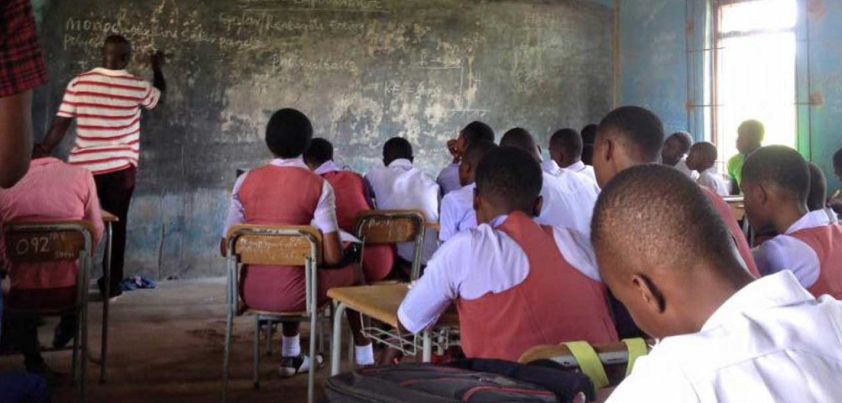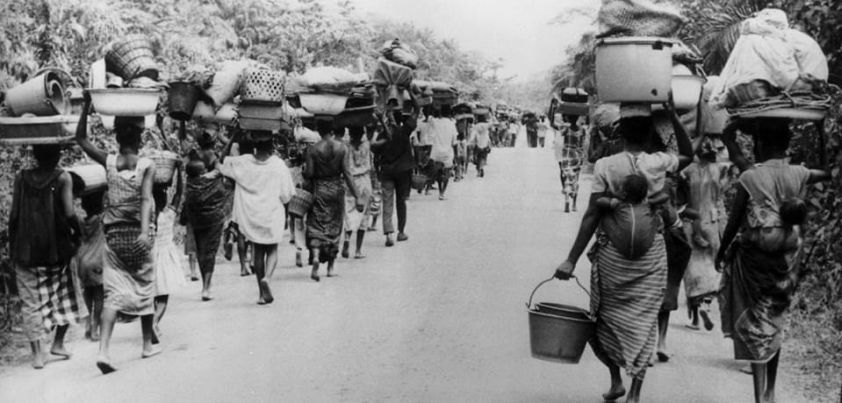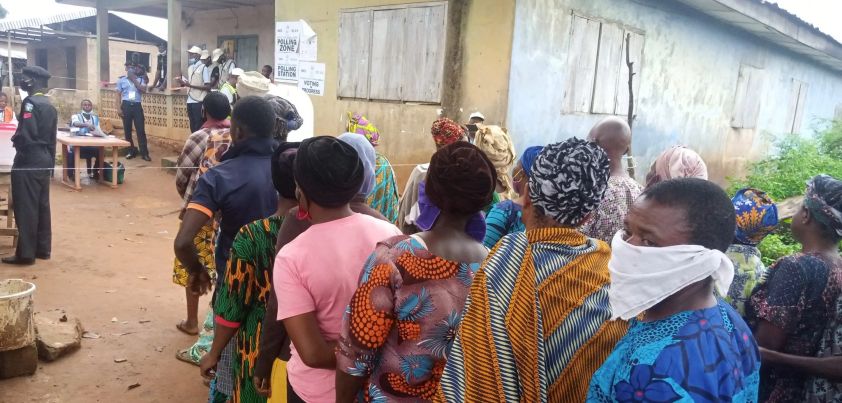 The major themes of this story by Chinua Achebe are political hypocrisy, class conflict, and education as a pathway out of poverty in postcolonial Africa. Other themes include exploitation, child labor and city vs. country life. A government introduces free education for all as an election ploy, but later abandons the policy due to its cost and resultant cheap-labor shortages. The vengeful creditor is a ten-year-old girl subsequently employed by a rich family as a baby-nurse. When they are too slow keeping what she thought was a promise to pay for her schooling, she decides to impose a heavy penalty. More…
The major themes of this story by Chinua Achebe are political hypocrisy, class conflict, and education as a pathway out of poverty in postcolonial Africa. Other themes include exploitation, child labor and city vs. country life. A government introduces free education for all as an election ploy, but later abandons the policy due to its cost and resultant cheap-labor shortages. The vengeful creditor is a ten-year-old girl subsequently employed by a rich family as a baby-nurse. When they are too slow keeping what she thought was a promise to pay for her schooling, she decides to impose a heavy penalty. More…
Archives
Dead Men’s Path
 The major theme of this story by Chinua Achebe is cultural clash, as reflected in the reformist zeal of a new headmaster who objects to local villagers walking through school grounds to access a path that is important to their animist beliefs. Set in a rural Nigerian mission school, the story takes place in 1949 when the country was still under British rule. It is ironic that, being Nigerian, the young headmaster failed to grasp the seriousness of the villagers’ concerns, whereas his “white Supervisor” seems to immediately understand the situation. Other themes include colonialism, tradition, superstition, pride, arrogance, retribution. More…
The major theme of this story by Chinua Achebe is cultural clash, as reflected in the reformist zeal of a new headmaster who objects to local villagers walking through school grounds to access a path that is important to their animist beliefs. Set in a rural Nigerian mission school, the story takes place in 1949 when the country was still under British rule. It is ironic that, being Nigerian, the young headmaster failed to grasp the seriousness of the villagers’ concerns, whereas his “white Supervisor” seems to immediately understand the situation. Other themes include colonialism, tradition, superstition, pride, arrogance, retribution. More…
The Sacrificial Egg
 The major theme of this story by Chinua Achebe is culture clash, as reflected in the changes forced on the Ibo (Igbo) people of South-Eastern Nigeria as they reconciled their traditional values and beliefs with the effects of Westernization under British colonial rule. One of the biggest changes observed by the narrator is the move from a village-based to an urbanized society, which resulted in a resurgence of smallpox. We also learn how some people, including the narrator, try to minimize such conflicts by maintaining a foot in both cultural camps. Other themes include colonialism, tradition, superstition, compromise. More…
The major theme of this story by Chinua Achebe is culture clash, as reflected in the changes forced on the Ibo (Igbo) people of South-Eastern Nigeria as they reconciled their traditional values and beliefs with the effects of Westernization under British colonial rule. One of the biggest changes observed by the narrator is the move from a village-based to an urbanized society, which resulted in a resurgence of smallpox. We also learn how some people, including the narrator, try to minimize such conflicts by maintaining a foot in both cultural camps. Other themes include colonialism, tradition, superstition, compromise. More…
Civil Peace
 On the surface, Chinua Achebe’s Civil Peace appears to be a light-hearted take on the challenges faced by a family in the aftermath of the Nigerian Civil War. In reality, it deals with the much darker themes of corruption, devastation and lawlessness, as well as the positive themes of being thankful for what you have, finding opportunity in adversity, hard work, family unity, and the resilience of the human spirit in times of extreme difficulty. Another theme, common in the third-world and reflected in the frequently repeated Nothing puzzels God!, is that everything that happens is part of God’s plan. More…
On the surface, Chinua Achebe’s Civil Peace appears to be a light-hearted take on the challenges faced by a family in the aftermath of the Nigerian Civil War. In reality, it deals with the much darker themes of corruption, devastation and lawlessness, as well as the positive themes of being thankful for what you have, finding opportunity in adversity, hard work, family unity, and the resilience of the human spirit in times of extreme difficulty. Another theme, common in the third-world and reflected in the frequently repeated Nothing puzzels God!, is that everything that happens is part of God’s plan. More…
The Voter
 This story by Chinua Achebe uses irony to highlight vote-buying in Nigerian village elections. A sitting politician’s wealth and lifestyle have improved dramatically since being elected. To retain his place at the trough, he appoints a group of canvassers to bribe influential villagers. His most trusted canvasser faces a dilemma, He is offered an unheard-of bribe to vote for the opposition, provided he swears on a talisman that will bring ill-fortune if he doesn’t do so. He takes the money, and creatively finds a way to avoid being disloyal to either party. Themes include corruption, politics, vote-buying, superstition, loyalty. More…
This story by Chinua Achebe uses irony to highlight vote-buying in Nigerian village elections. A sitting politician’s wealth and lifestyle have improved dramatically since being elected. To retain his place at the trough, he appoints a group of canvassers to bribe influential villagers. His most trusted canvasser faces a dilemma, He is offered an unheard-of bribe to vote for the opposition, provided he swears on a talisman that will bring ill-fortune if he doesn’t do so. He takes the money, and creatively finds a way to avoid being disloyal to either party. Themes include corruption, politics, vote-buying, superstition, loyalty. More…
Marriage Is a Private Affair
 The major themes of this early story by Chinua Achebe are generational conflict and change/progress. A young Nigerian couple living in 1950s Lagos decide to get married. They are from different ethnic groups, which causes tension with the man’s village-based father. He is from the Igbo ethnic group in which marriages are traditionally arranged by parents and restricted to others within the group. When the couple marry in defiance of tradition, the man’s father cuts off contact. Eight years later, a letter and rainstorm cause him to regret the decision. Other themes: family, tradition, bigotry, gender roles, defiance, pride, remorse. More…
The major themes of this early story by Chinua Achebe are generational conflict and change/progress. A young Nigerian couple living in 1950s Lagos decide to get married. They are from different ethnic groups, which causes tension with the man’s village-based father. He is from the Igbo ethnic group in which marriages are traditionally arranged by parents and restricted to others within the group. When the couple marry in defiance of tradition, the man’s father cuts off contact. Eight years later, a letter and rainstorm cause him to regret the decision. Other themes: family, tradition, bigotry, gender roles, defiance, pride, remorse. More…